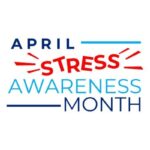PCP – Phencyclidine
Brief Description
 PCP is a synthetic drug sold as tablets, capsules, or white or colored powder. It can be snorted, smoked, or eaten. Developed in the 1950s as an IV anesthetic, PCP was never approved for human use because of problems during clinical studies, including intensely negative psychological effects.
PCP is a synthetic drug sold as tablets, capsules, or white or colored powder. It can be snorted, smoked, or eaten. Developed in the 1950s as an IV anesthetic, PCP was never approved for human use because of problems during clinical studies, including intensely negative psychological effects.
First introduced as a street drug in the 1960s, PCP quickly gained a reputation as a drug that could cause bad reactions and was not worth the risk. However, some abusers continue to use PCP due to the feelings of strength, power, and invulnerability as well as a numbing effect on the mind that PCP can induce. Among the adverse psychological effects reported are:
- Symptoms that mimic schizophrenia, such as delusions, hallucinations, paranoia, disordered thinking, and a sensation of distance from one’s environment.
- Mood disturbances: Approximately 50 percent of individuals brought to emergency rooms because of PCP-induced problems (related to use within the past 48 hours), report significant elevations in anxiety symptoms.
- People who have abused PCP for long periods of time have reported memory loss, difficulties with speech and thinking, depression, and weight loss. These symptoms can persist up to one year after stopping PCP abuse.
- Addiction: PCP is addictive—its repeated abuse can lead to craving and compulsive PCP-seeking behavior, despite severe adverse consequences.
angel dust
boat
dummy dust
love boat
peace
supergrass
zombie

Effects
 PCP, developed in the 1950s as an intravenous surgical anesthetic, is classified as a dissociative anesthetic: Its sedative and anesthetic effects are trance-like, and patients experience a feeling of being “out of body” and detached from their environment. PCP has been used in veterinary medicine but was never approved for human use because of problems that arose during clinical studies, including delirium and extreme agitation experienced by patients emerging from anesthesia.
PCP, developed in the 1950s as an intravenous surgical anesthetic, is classified as a dissociative anesthetic: Its sedative and anesthetic effects are trance-like, and patients experience a feeling of being “out of body” and detached from their environment. PCP has been used in veterinary medicine but was never approved for human use because of problems that arose during clinical studies, including delirium and extreme agitation experienced by patients emerging from anesthesia.
PCP’s effects are unpredictable. Typically, they are felt within minutes of ingestion and last for several hours. Some users report feeling the drug’s effects for days. One drug-taking episode may produce feelings of detachment from reality, including distortions of space, time, and body image; another may produce hallucinations, panic, and fear. Some users report feelings of invulnerability and exaggerated strength. PCP users may become severely disoriented, violent, or suicidal.
Health Concerns
At low-to-moderate doses, physiological effects of PCP include a slight increase in breathing rate and a pronounced rise in blood pressure and pulse rate. Breathing becomes shallow; flushing and profuse sweating, generalized numbness of the extremities, and loss of muscular coordination may occur.
At high doses, blood pressure, pulse rate, and respiration drop. This may be accompanied by nausea, vomiting, blurred vision, flicking up and down of the eyes, drooling, loss of balance, and dizziness. PCP abusers are often brought to emergency rooms because of overdose or because of the drug’s severe untoward psychological effects. While intoxicated, PCP abusers may become violent or suicidal and are therefore dangerous to themselves and others. High doses of PCP can also cause seizures, coma, and death (though death more often results from accidental injury or suicide during PCP intoxication). Because PCP can also have sedative effects, interactions with other central nervous system depressants, such as alcohol and benzodiazepines, can also lead to coma.
Source: NIDA (National Institute on Drug Abuse)










